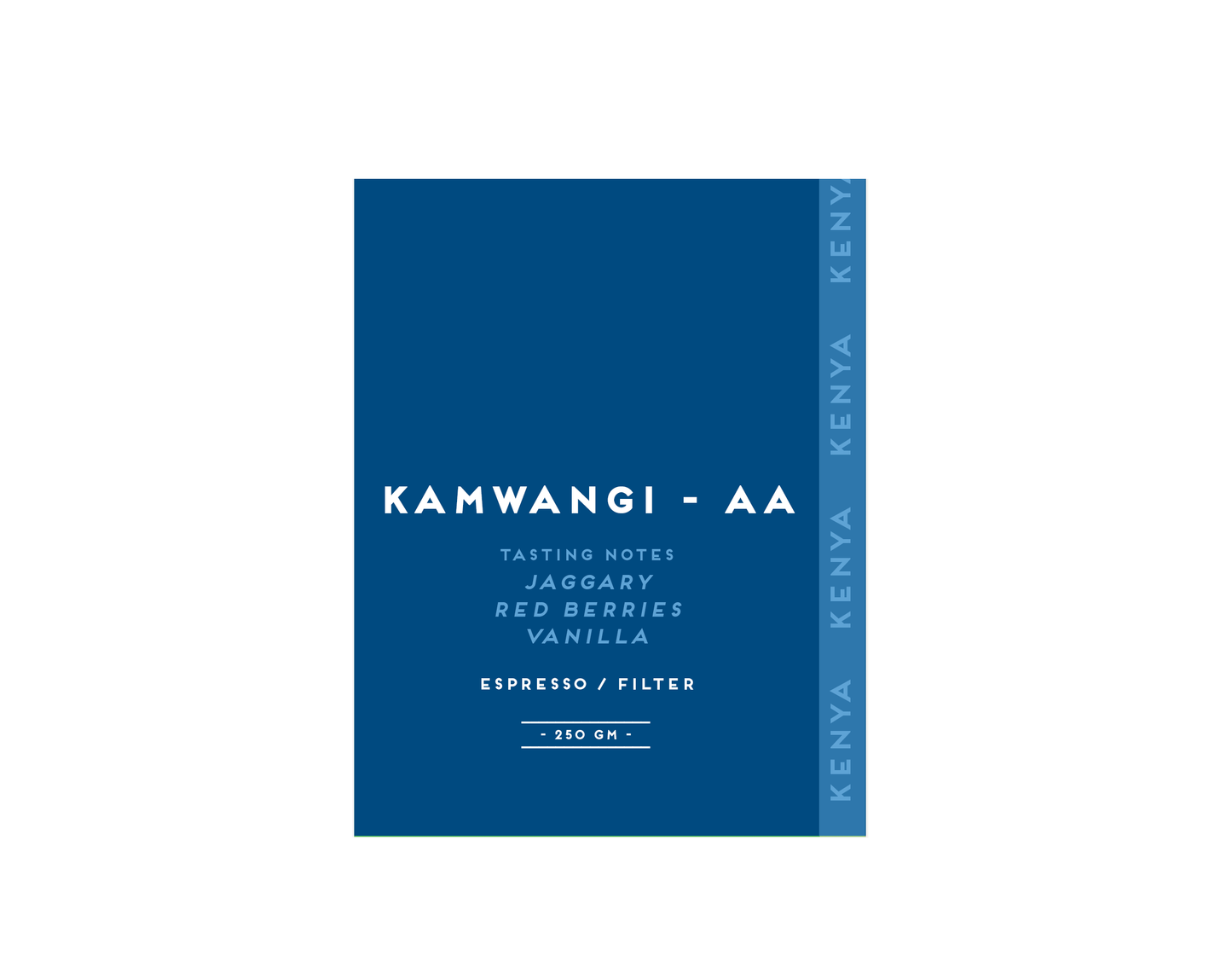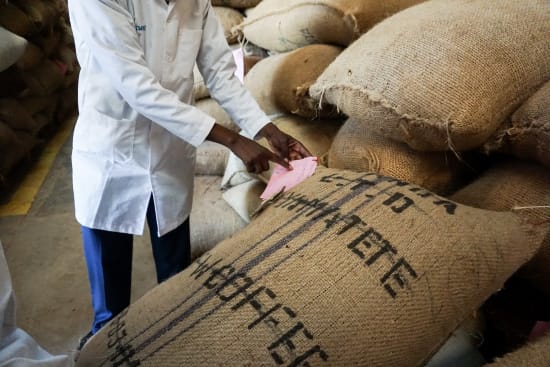My Store
Kamwangi AA, Kenya (250gm)
Kamwangi AA, Kenya (250gm)
Couldn't load pickup availability
Kamwangi AA, Kenya - available in 250gm.
Country // Kenya
Altitude // 1500m above sea level
Variety // Batian, SL28, SL34, Ruiru 11
Process // Washed
Tasting notes // Jaggary, Red Berries, Vanilla
About:
The Kamwangi factory, which is in the northeast part of Kirinyaga, is owned and managed by the New Ngariama Farmers Cooperative Society (F.C.S.). It is the second factory that the co-op established; New Ngariama F.C.S. now has three factories.
Roughly 985 active members deliver coffee to the factory; each farmer owns an average of 200–250 coffee trees. After harvesting, the farmers deliver cherry to the factory for sorting and separating, after which it is depulped on traditional disc depulping machines. It is then fermented for 24–28 hours in tanks, then washed in grading channels. The highest grades of coffee at this factory typically receive an additional soak of 12–24 hours, dependent solely on the available space on the drying beds. All of the coffee goes to skin-drying beds to bring the moisture content to around 44% before being spread on traditional drying beds for 9–13 days, being rotated constantly. Once the moisture content reaches 11–13%, the coffee is moved to conditioning bins, where it is stored and rotated every two days to help homogenize moisture content and stabilize the parchment coffee.
Coffee in Kenya is typically traceable down to the factory, or mill level: Most farmers own between 1/8 to 1/4 of a hectare, and often grow crops other than coffee as well, which means they rely on a central processing unit for sale and processing of their coffee. Producers deliver in cherry form to a factory, where the cooperative will sort, weigh, and issue payment for the delivery. The coffee is then blended with the rest of the day's deliveries and goes on to be processed. Because of this system, which serves many hundreds to several thoughts of smallholder farmers per factory, there is limited traceability down to the individual producers whose coffee comprises the lots.
Share




